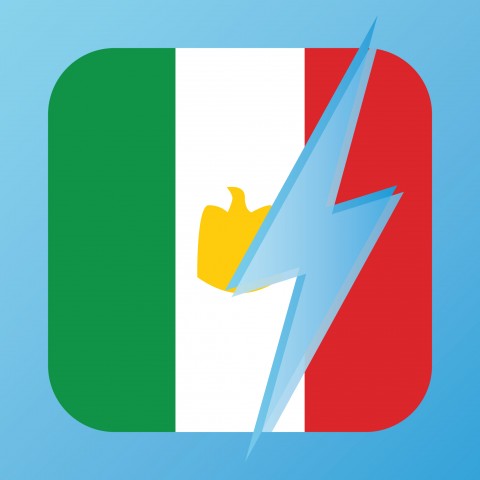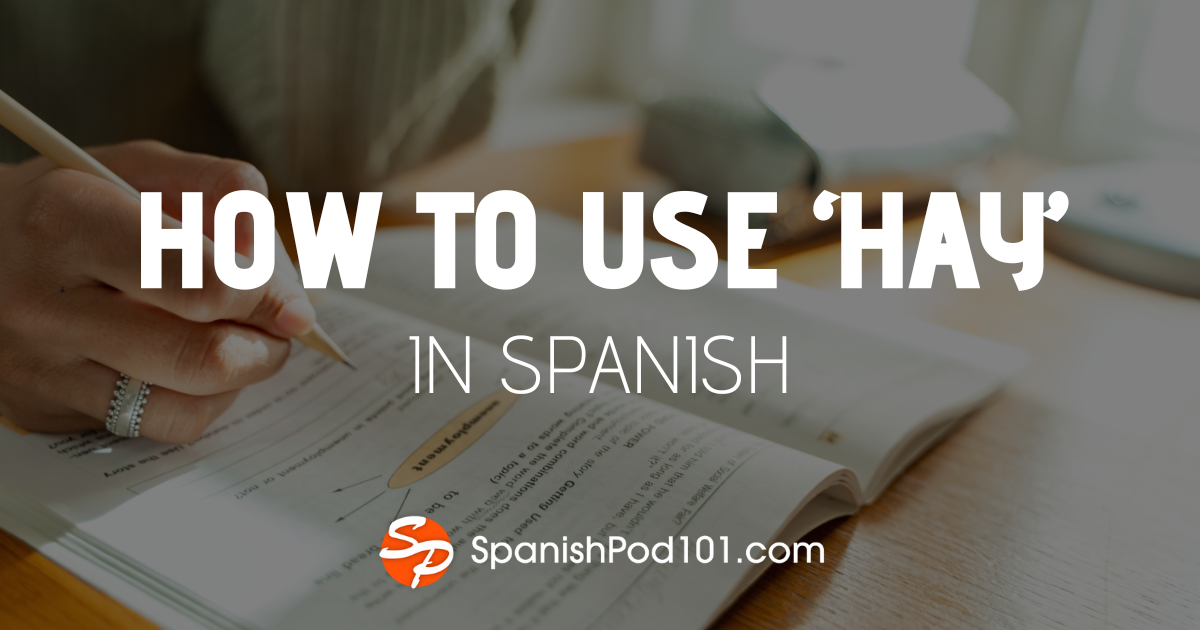
All over the world, the use of words borrowed from the English language is rapidly growing. The internet, social media, and the internationalization of American cultural products are among the biggest “English word exporters.”
However, several factors have created a special bond between the Spanish and English languages. For starters, the proximity between the U.S. and Latin America (which is home to the largest number of Spanish speakers in the world) has allowed a great cultural exchange—and with it, an important language exchange. As such, there are several English words used in Spanish and Spanish words used in English.
There is a huge Latin American community living in the United States, and this community has brought elements of the Latin American culture and language into the country. Spanish spoken in the U.S. has changed with time, giving birth to Spanglish: the excessive mixing of English and Spanish by Spanish speakers.
Nonetheless, the mixing of Spanish and English words is not exclusive to Latinos living in the U.S. The use of English words in the Spanish language is present in every Spanish-speaking country, and the language exchange has actually happened both ways! There are numerous words used in the English language that come from Spanish.
In this article, you’ll learn everything about Spanglish, imported English words used in Spanish, and Spanish words used in English. We’ll show you the most popular words and how they are used, so you’ll never be caught off-guard.
Are you ready to take your Spanish speaking to a whole new level with SpanishPod101? Then let’s begin.

 Table of Contents
Table of Contents
- What is Spanglish?
- Some Common Spanglish Words
- English Loanwords vs. Spanglish
- How are Anglicisms Used in Spanish?
- Borrowed Spanish Words Used in English
- La Despedida
1. What is Spanglish?
Spanglish isn’t something new—it’s a complex linguistic phenomenon that has been building for years now. Some linguists affirm that it dates back to the times when a great part of the North American territory was actually a part of Mexico. Others date it to more recent years, with the immigration of numerous people of Latin American origin into the U.S.
Spanglish is basically a mix between Spanish and English in speech. While it is not an official language and there are no rules about its usage, a lot of people use it in their daily lives. But how did it originate and where does it come from?
The Latin population in the U.S. and the hybridization between Spanish and English
Currently, there are about 30 million people of Hispanic origin living in the United States. Around 60% of this population is bilingual, using both English and Spanish in their daily lives. These bilingual speakers sometimes have a very particular way of mixing English and Spanish when speaking, using what we now call Spanglish.
Some of these newcomers to the U.S. did not speak English when they arrived, so in their effort to communicate, they would mix Spanish with the English words they did know. This way of speaking has passed through generations, and for some, it has become a part of their identity.
With time, the new generations born in the U.S. (whose first language was English) started taking words or expressions from English and using them in Spanish with their own literal translations. Some of these words became so common that they are now widely used and have become a part of the Spanish jargon.
Here’s an example:
| English | Spanglish | Correct Spanish Translation |
| “to call back” | llamar para atrás | llamar de vuelta |
Another thing that happens in Spanglish is the “Spanization” of English words. For example:
| English | Spanglish | Correct Spanish Translation |
| “to park” | parquearse | estacionarse |
Who speaks Spanglish?

Tacos in Los Angeles
As we mentioned before, Spanglish was born in the U.S., and it’s widely spoken in Spanish-speaking communities in North America. This is especially common in states like California, Texas, and New York, which have very large Hispanic populations.
However, the phenomenon of Spanglish has expanded. In northern Mexico, a lot of people use Spanglish regularly. This is also the case in Central America, particularly in areas of Panama that were heavily influenced by America during the construction of the Panama Canal. Some linguists have also found Spanglish jargon used in Hispanic communities living in Australia and New Zealand.
2. Some Common Spanglish Words
Here are a few more Spanglish examples you’re likely to hear:
| English | Spanglish | Actual Spanish Translation |
| Actually | Actualmente | En realidad |
| To check | Chequear | Verificar |
| To freeze | Frizar | Congelar |
| To watch | Wachar | Mirar |
| To rent | Rentar | Alquilar |
| To park | Parquear | Estacionarse |
Confusing, right?
Well, it’s just a matter of getting used to managing Spanish and English at the same time. Once you get the hang of it, the words start to flow.
Some of these words are actually so widely used that they have remained in use all over Latin America. A good example is rentar, which a lot of people don’t even know comes from the English word “rent.”
3. English Loanwords vs. Spanglish
Loanwords are another story. They are foreign words that become part of another language’s common vocabulary without a translation. This is something that happens in every language.
Many English loanwords used in Spanish are related to technology. Here are some examples:
- Influencer
- Click
- Hack
Most of these words are adapted for or assimilated into the Spanish language. For example, verbs tend to be conjugated according to Spanish conjugation rules. Other loanwords remain unassimilated and are used exactly as they’re used in English.
We’ll explain this in more detail later in the article. For now, have a look at some of the most common English words used in Spanish.
In Sports

To surf (Surfear)
| Spinning | Tengo clase de Spinning en el gimnasio. “I have a spinning class at the gym.” |
| Surf | Este fin de semana iré a surfear. “This weekend I will go surfing.” |
| Penalty | El partido se definió por penaltis. “The match was defined by penalties.” |
| Football | El futbol es mi deporte favorito. “Football is my favorite sport.” |
| Goal | El equipo anotó 3 goles. “The team scored three goals.” |
At the Restaurant
| Sandwich | Tengo antojo de un sandwich. “I am craving a sandwich.” |
| Cocktail | La margarita es mi cóctel favorito. “Margarita is my favorite cocktail.” |
| Ketchup | Quiero una hamburguesa sin catsup, por favor. “I want a burger without ketchup, please.” |
| Pie | Voy a hornear un pay. “I will bake a pie.” |
| Topping | Quiero un helado con topping de chocolate. “I want an ice cream with chocolate topping.” |
At Work
| Marketing | Trabajo en marketing. “I work in marketing.” |
| Intern | Soy intern en una ONG. “I am an intern at an NGO.” |
| Te enviaré un email. “I will send you an email.” | |
| Home office | Una vez al mes hago home office. “I work from home once a month.” |
| IT | El equipo de IT arreglará tu computadora. “The IT team will fix your computer.” |
Traveling

To check in (Hacer check in)
| Check in | Tenemos que hacer check-in en el hotel. “We have to check in at the hotel.” |
| Check out | El check-out es a las 12. “Checkout is at 12.” |
| Loft | Renté un loft en la playa. “I rented a loft at the beach.” |
| Voucher | La aerolinea me dio un voucher. “The airline gave me a voucher.” |
| All-inclusive | Me quedaré en un all inclusive estas vacaciones. “This holiday, I will stay at an all-inclusive.” |
- → Would you like to learn more travel-related vocabulary? Check out our series Lessons for Your Flight to Mexico!
4. How are Anglicisms Used in Spanish?
As we mentioned earlier, English words used in Spanish are often merged into the language and are “hispanicized.” This means they are adapted phonologically, graphically, and orthographically to the Spanish language. For example:
Verbs are given a Spanish conjugation.
| Voy a googlear eso. | “I will Google that.” |
| Hackearon mi computadora. | “My computer was hacked.” |
Words are also hispanicized in their pronunciation.
| Voy a jugar voleibol. | “I will play volleyball.” |
| Hace frío afuera, voy a usar un suéter. | “It is cold outside, I will wear a sweater.” |
However, language experts suggest that the correct way to use English words in Spanish is to maintain their original spelling and pronunciation:
Soy un ingeniero de software. → I am a software engineer.
If you want to learn more about how to pronounce words in Spanish like a native, check out this lesson series!
Is it correct to use Anglicisms in Spanish?
The evolution of languages is a common thing, especially in our globalized society. The inclusion of foreign words in a language is part of this evolution and is something that just can’t be avoided.
However, RAE (Real Academia Española de la Lengua), the biggest authority on the Spanish language, suggests avoiding the use of unnecessary anglicisms, especially when there are Spanish words available.
The use of English words in Spanish changes greatly from country to country. Inhabitants of countries with stronger cultural ties to the U.S., such as Panama, commonly use English words in their vocabulary. Countries like Spain, on the other hand, are more protective toward the purity of the language and tend to have fewer English words incorporated into their vocabulary.
5. Borrowed Spanish Words Used in English
English and Spanish speakers have been exchanging their cultures and languages for centuries, and the relationship goes both ways. As such, there are many borrowed Spanish words used in English.
As you may know, a big part of the United States’ territory used to be part of Mexico about one and a half centuries ago. The Mexican influence in the southern U.S. is especially evident in the number of Mexican Spanish words used in English.
Now, with the growing number of Americans of Hispanic origin, there are more and more Spanish words being used in English. It’s interesting to note that while many of the English words commonly used in Spanish are verbs, most Spanish words used in English are nouns.
- → Would you like to learn more about Mexican Spanish? Find all the basics in this quick lesson.
Food
Mexican food is extremely popular in America, so many of the Mexican words in English are food-related.

| Jalapeños (Hot peppers) | “I want nachos with jalapeños. “Quiero nachos con jalapeños. |
| Cocoa (From ‘cacao,’ the fruit used to make chocolate) | “I’d like to drink hot cocoa. “Me gustaría tomar chocolate caliente. |
| Avocado (Anglicization of Spanish aguacate) | “Avocado is my favorite fruit. “El aguacate es mi fruta favorita. |
| Quesadilla (Mexican meal) | “I ate some quesadillas at the Mexican restaurant. “Comí quesadillas en el restaurante mexicano. |
| Tamale (Mexican meal) | “My grandma makes delicious tamales. “Mi abuela hace tamales deliciosos. |
- → Craving some Mexican food? Learn how to order it in Mexican Spanish like a pro in this lesson!
Animals and Nature
| Canyon (A deep valley) | “I want to visit the Grand Canyon. “Quiero visitar el gran cañón. |
| Arroyo (A creek or wash) | “Let’s refresh our hands in the arroyo. “Refresquémos nuestras manos en el arroyo. |
| Tornado (Funnel-shaped windstorm) | “We have to find shelter before the tornado. “Tenemos que buscar refugio antes del tornado. |
| Sierra (Chain of mountains) | “The Sierra Nevada crosses the state of California. “La sierra nevada cruza el estado de california. |
| Mosquito (Insect) | “Mosquitos come out at sunset. “Los mosquitos salen al atardecer. |
- → Would you like to learn more about insect names in Spanish? Then don’t miss our Bugs and Insects vocabulary list!
People and Places
| Fiesta (Party) | “The village had a fiesta for its patron saint. “El pueblo tuvo una fiesta para su santo patrono. |
| Patio (Terrace, porch) | “I will go get some sun on the patio. “Voy a tomar sol en el patio. |
| Ranch (Large farm) | “They have hundreds of cows on the ranch. “Tienen cientos de vacas en el rancho. |
| Aficionado (Fan) | “I am a jazz aficionado. “Soy un aficionado del jazz. |
| Conquistador (Conqueror) | “The Spanish conquistadores arrived in Cuba in 1492. “Los conquistadores españoles llegaron a Cuba en 1492. |
Well, these are just some of the most common Spanish words used in English—there are many more! In Spanish, the pronunciation of many of these words is anglicized to adapt to their English-language counterparts.
La Despedida
In this guide, you’ve learned about the strong bond between the Spanish and English languages. After reading through so many language exchange examples, can you think of any words we missed?
This is just an overview, and with time, you’ll become more fluent in Spanish and start having conversations with Spanish speakers. The more you converse, the more you’ll realize that the Spanglish phenomenon is more diverse than you could imagine and that it manifests itself differently from one Spanish-speaking country to another.
If you want to learn more Spanish vocabulary and become a master of the language, don’t forget to check out SpanishPod101’s resource library. You can find vocabulary lists, a lesson library, and flashcards to make your learning process fun and easy.
And don’t forget that SpanishPod101 also offers personalized one-on-one lessons with a professional teacher. Just sign up for a Premium PLUS account, and your teacher can guide you through each step of your learning journey and expedite your progress.
Happy learning y hasta luego!










